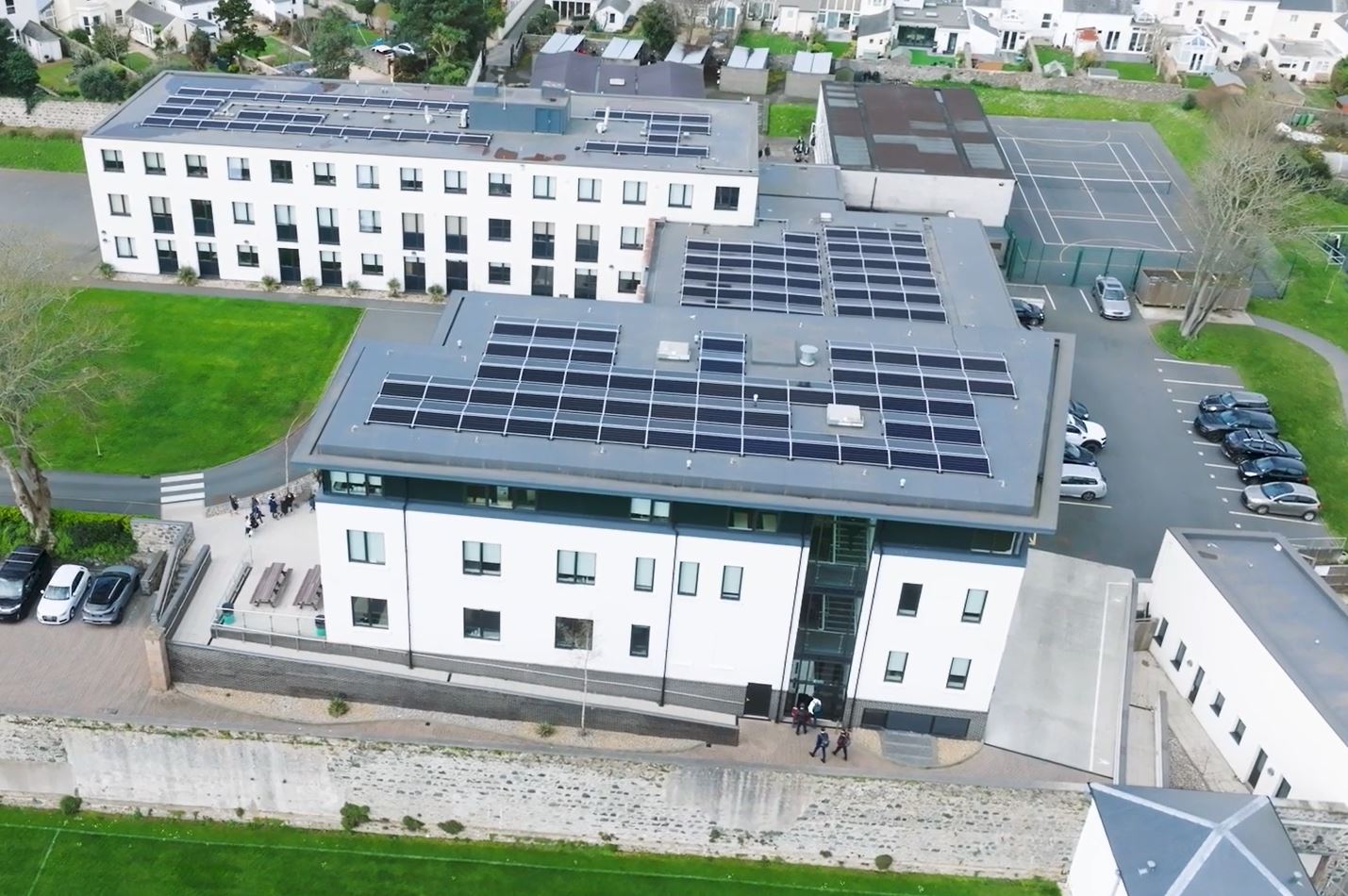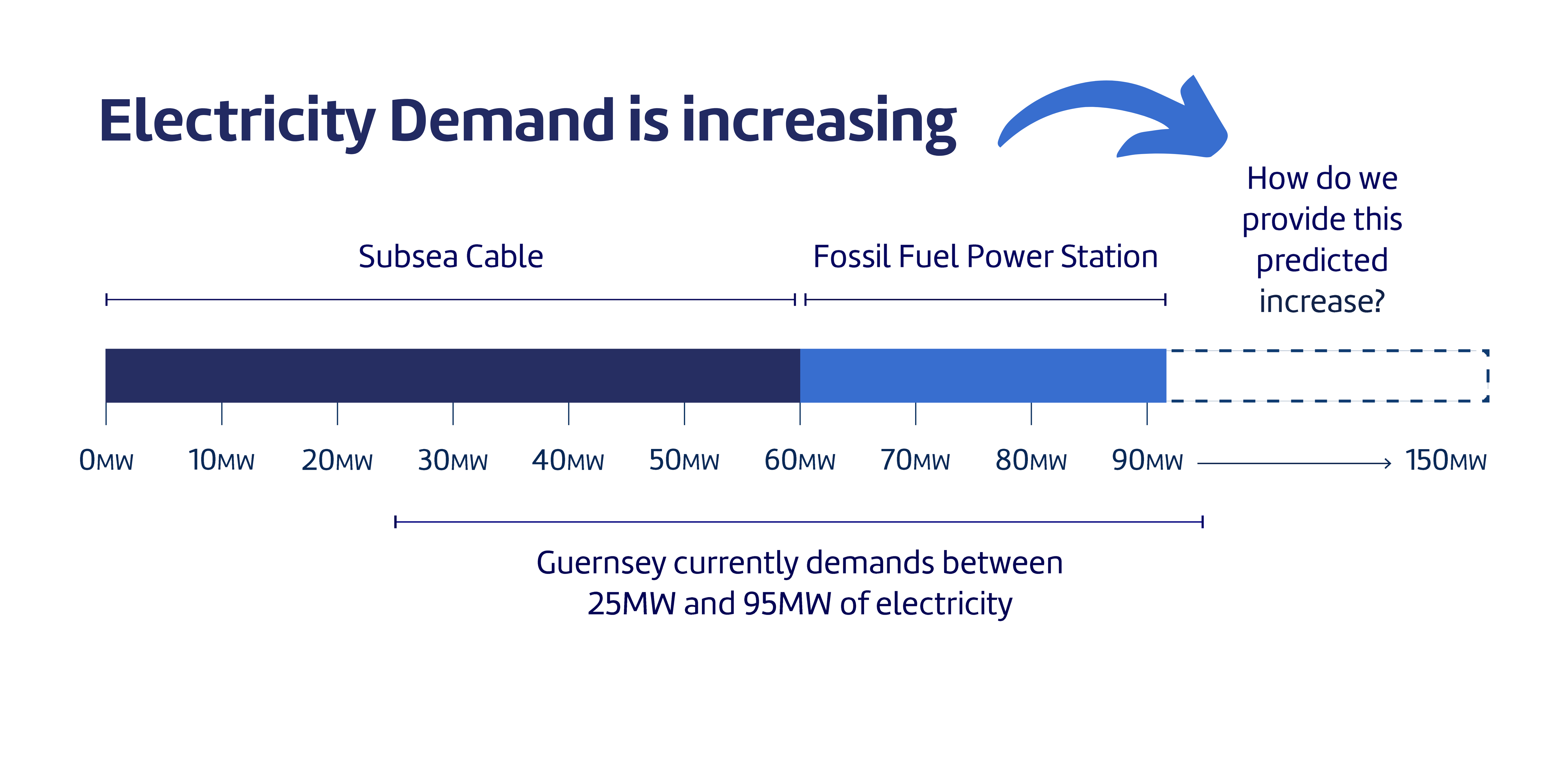Renewables for all
Local renewables alone cannot provide the electricity we need today, let alone in the future. Using a mix of sources will offer reliability and security. This isn't a choice between subsea cable or local renewables.
Guernsey Electricity’s long-term strategy is for an energy system that supports renewables and reduces the reliance on fossil fuels to use the power station for emergency generation only.
With the islands ‘Peak’ electricity demand expected to reach around 150MW by 2050 - the Electricity Strategy will define how we power businesses, keep the Wi-Fi on and our homes warm in a sustainable way.
-
Energy analysis & strategy recommendationsUniversity of Exeter in co-operation with the Guernsey Renewable Energy TeamFinal report
-
The Island's Energy PolicyOutlining the vision for Guernsey’s energy future and prioritising opportunities to reduce emissions.Read the States of Guernsey Energy Policy 2020-2050
-
Renewable Energy StrategyA States of Guernsey reportRenewable Energy Strategy 2017 Onwards
-
Energy demand forecastA report commissioned to forecast energy demand on the Island of Guernsey out to 2050.Energy Demand Forecast
-
Offshore WindA study that investigated renewable energy development in Guernsey, focusing on offshore wind and tidal energyOffshore Wind Preliminary Feasibility Report
-
Offshore wind and tidal energy in GuernseyAn Exeter University study that investigated public acceptability of renewable energy development in Guernsey, focusing on offshore wind and tidal energySummary Report
-
Powering the FutureDocument outlining the options and decisions required to meet the islands growing demandPowering the Future
Guernsey’s situation regarding net zero and greater energy independence by 2050
Where our energy comes from and how we use it will play a leading role in reaching ‘net zero’ by 2050. We used to rely on our fossil fuel power station for all our electricity but since 2000, the subsea cable connecting us to Europe has been our primary source of electricity, which has dramatically reduced our carbon emissions.
The phasing out of petrol and diesel vehicles and fossil fuel heating means the phasing in of electric-powered alternatives so demand for electricity is predicted to increase. At the moment, as we have no other option, this would mean using the power station more.
Peak demand is expected to reach around 150MW by 2050. Without clear direction on further interconnection, we will need to replace and upgrade additional diesel generators at the power station which will cost £10s of millions to support more renewables.
However, when demand exceeds 60MW (which is the most we can import through the cable), we make up the difference by using the power station, which comes with both environmental and financial costs.
We believe that this is not the right solution, and it also does not achieve one of the stated Energy Policy’s objectives of decarbonising the Island and providing electricity from low carbon sources.
“It’s verging on the criminal to be building something today that you know you’ve got to decarbonise in a few years’ time” [Matthew Knight, Siemens Energy]

We fully support renewable energy; our goal is to ensure renewable energy becomes accessible and affordable for all. But we must consider not only the end goal, but how we facilitate the journey.
For example, if we decide on an offshore wind farm, it could take well over 10 years to be operational, so in the interim, how do we meet the growing demand for electricity as more consumers have electric transport and heating?

We believe that everyone in Guernsey should be able to use and benefit from renewable electricity. Guernsey Electricity has installed some of the largest solar arrays installed in the Channel Islands which feed more than 350kW of renewable electricity into the grid for everyone to use.








